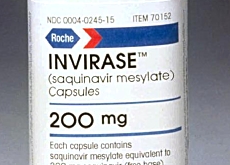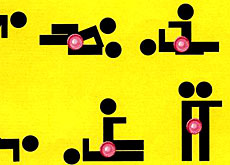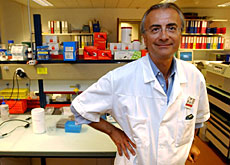Decline in HIV and Aids cases

The number of Aids cases in Switzerland last year dropped by about 20 per cent, and 702 people tested positive for HIV - 41 fewer than in 2004.
Cause for alarm, according to the Federal Health Office, was the rise in the number of homosexuals diagnosed with Aids.
The office said of the declared cases in 2005, there were more than twice as many men (163) as women (71).
In total, 298 cases of Aids were reported to the authorities in 2005 – compared with 234 cases in 2004.
However, officials warned that it was too early to draw any conclusions since only 111 new cases were diagnosed last year – the rest are from previous years but were first reported in 2005.
The office also said it would take a couple of more years before the real figures for 2005 were known.
It added that there would most likely be an increase in the number of Aids cases in the coming years since it could be assumed that HIV patients who have been undergoing long-term therapy would contract the disease.
Therapies
The use of antiviral combination drug therapies has led though to a decline in the number of Aids-related deaths.
Last year, a total of 55 people died from Aids (42 men and 13 women) – 31 fewer than in 2004.
The Health Office said it has already begun targeting homosexual men with its latest prevention campaign, since they now account for 50 per cent of the total diagnosed last year with Aids, a sharp rise of 13 per cent over 2004.
According to the non-governmental Swiss Aids Federation, 20 per cent of gay men practise unprotected sex in risk situations – double the number a decade ago.
swissinfo with agencies
There were 234 Aids cases in 2005, compared to 298 in 2004.
50% were homosexual men.
702 people tested positive for HIV last year, which was 41 fewer than 2004.
According to the Swiss Aids Federation, more than 20,000 men and women live with HIV/Aids in Switzerland. Two people are diagnosed HIV-positive every day.
Cash available for HIV/Aids campaigns has almost halved to SFr9 million ($6.9 million) since 2004, according to the Health Office.

In compliance with the JTI standards
More: SWI swissinfo.ch certified by the Journalism Trust Initiative












You can find an overview of ongoing debates with our journalists here . Please join us!
If you want to start a conversation about a topic raised in this article or want to report factual errors, email us at english@swissinfo.ch.